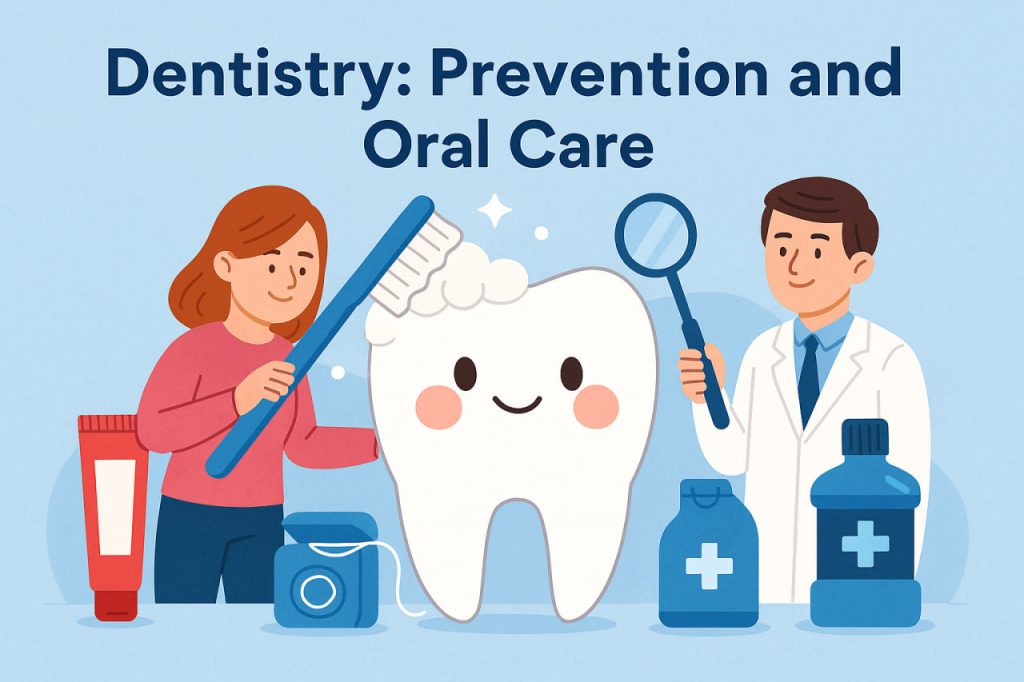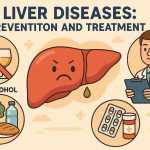Oral health is a vital part of overall well-being. Good dental hygiene not only prevents tooth decay and gum disease, but also reduces the risk of conditions such as heart disease, diabetes, and even respiratory infections. Dentistry is not just about treating problems—it is also about maintaining healthy teeth and gums throughout life.
The Role of Preventive Dentistry
Preventive dentistry focuses on routine care that keeps dental issues from developing in the first place. Regular visits to a dentist, combined with good daily oral hygiene, can significantly reduce the need for complex treatments. Preventive care includes cleanings, check-ups, and fluoride applications, all of which help protect tooth enamel and detect problems early.
Daily Oral Hygiene Habits
Proper daily care is the foundation of healthy teeth and gums. Essential practices include:
- Brushing teeth at least twice a day with fluoride toothpaste
- Flossing daily to remove plaque between teeth
- Using an antibacterial mouthwash to reduce bacteria
- Cleaning the tongue to prevent bad breath
- Replacing your toothbrush every 3–4 months
These habits prevent the buildup of plaque, a sticky film of bacteria that leads to tooth damage and gum inflammation.
Diet and Oral Health
A balanced diet supports oral health. Limiting sugar intake, especially from sodas and snacks, helps reduce the risk of cavities. Foods rich in calcium, vitamin D, and phosphorus strengthen teeth and bones. Drinking plenty of water, especially fluoridated water, also supports enamel health and washes away food particles.
Common Dental Problems and How to Prevent Them
- Tooth decay – caused by acid-producing bacteria that damage enamel
- Gingivitis – early-stage gum inflammation due to plaque buildup
- Periodontitis – advanced gum disease that can lead to tooth loss
- Tooth sensitivity – often caused by enamel erosion or gum recession
- Bad breath (halitosis) – may result from poor hygiene, gum issues, or other health conditions
Most of these conditions are preventable with proper care and early intervention by a dental professional.
Children and Dental Care
Oral hygiene should begin early. Teaching children to brush and floss properly helps build life-long habits. Pediatric dentists often recommend sealants to protect molars and early orthodontic evaluations to guide jaw and tooth development.
When to See a Dentist
Regular dental checkups every six months are ideal for most people. However, seek professional care sooner if you notice:
- Bleeding gums
- Tooth pain or sensitivity
- Loose teeth
- Swelling in the mouth or jaw
- Persistent bad breath
Ignoring early symptoms may lead to more serious complications.
Glossary
- Oral health – the health of the mouth, teeth, gums, and related structures
- Plaque – a film of bacteria that forms on teeth and contributes to decay
- Tooth enamel – the hard outer layer of a tooth that protects against damage
- Fluoride – a mineral that strengthens tooth enamel and helps prevent cavities
- Gingivitis – inflammation of the gums, often the first stage of gum disease
- Periodontitis – a severe gum infection that damages soft tissue and bone
- Sealants – protective coatings applied to teeth to prevent decay


